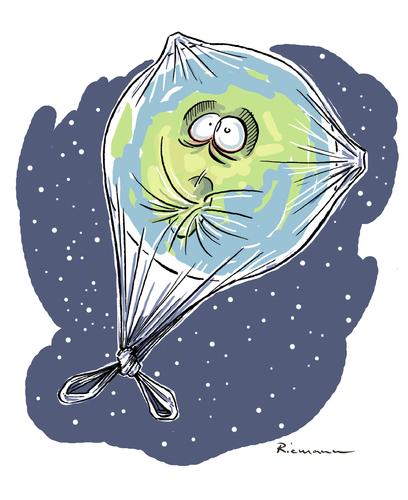Plastic: Can We Ever Get Rid of it?
Plastic has unfortunately become a very vital component in
industries and has seamlessly integrated itself into our daily lives that it’s
hard to imagine a life without it. There are many campaigns and organizations that
work actively to advocate against using plastic products but at most times we
see all that campaigning fall on deaf ears. We should keep in mind that there
are many restraints we collectively face as a society and also on an
individualistic level that impede us from making progress and make impactful changes
to the environment we live in.
All of us tend to automatically gear towards things that are
cost-efficient or cheap, are easily accessible in the market, and have
longevity to them. Plastic ticks the boxes for all three which is exactly the reason
why industries are able to produce so much of it while consumers simply keep
buying the products they’ve got to sell. A lot of industries rely on plastic as
their primary source of income and capital, so it would only be a financial
setback for them to cut its usage. Another thing we should consider is the
recyclability of plastic. The necessary technology and equipment exist for the
process, but they aren’t cost-friendly and feasible considering the amount of
water, energy and effort that is put into cleaning and preparing used plastic
in order for successful recycling.
There are a lot of limitations when we arrive at the social aspect
of this issue, the major one being education. Being educated on any given topic
and having enough awareness and knowledge to act on it is the prerequisite to
making a real change. We could easily shift the blame on social media and talk
about how ‘easy’ it is to be in the know of it all but we should also keep in
mind that not everyone has access to it. Citizens living in rural areas might
still not know the global impact of continued and careless use of plastic which
is why it should become our priority to keep everyone informed of the dangers
of non-biodegradable waste and make conscious efforts to minimize our use of
plastic.
Our mindsets and the way we perceive things undoubtedly impact
the way we’re going about this whole situation. We tend to associate the lack
of personal connection to the dangers happening with plastic use. For instance,
I used to be a very careless individual and wouldn’t think twice before
throwing away my plastic bottle of juice in some corner of the street, not
thinking of the consequences or how it would affect, say, dogs. This similar
mindset is what people employ to turn a blind eye to the imminent dangers of
plastic and lines like “at least I don’t throw plastic directly in the ocean”
are used to justify their refusal to cooperate with and participate in plastic
waste abatement and reduction of litter.
All in all, while cutting plastic completely seems a bit
unrealistic, especially when we look at all these barriers and obstacles that
come in the way, I think what we need to practice and preach is fostering
mindfulness and having a deeper consideration of the products that we use on a
daily basis and amend our habits to reduce plastic use such as bringing our own
cup, carrying/using metal bottles instead of plastic ones, etc. We should
remember and practice that a little effort goes a long way and if we consciously
make an active effort, we can expect to see a positive difference and a cleaner
world.

No comments:
Post a Comment